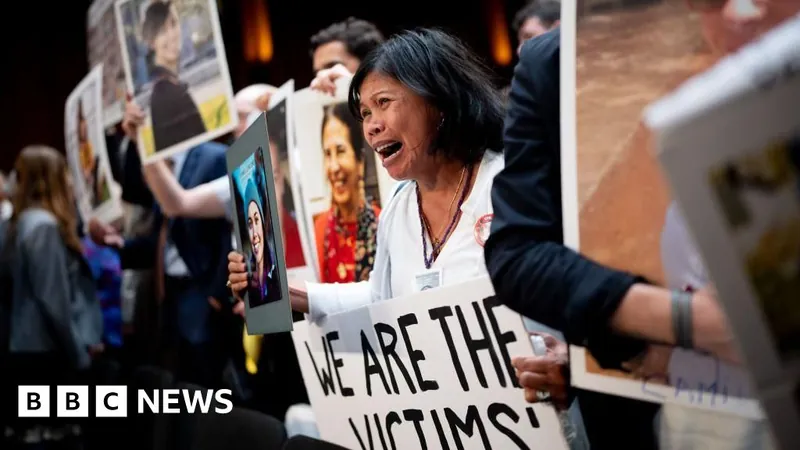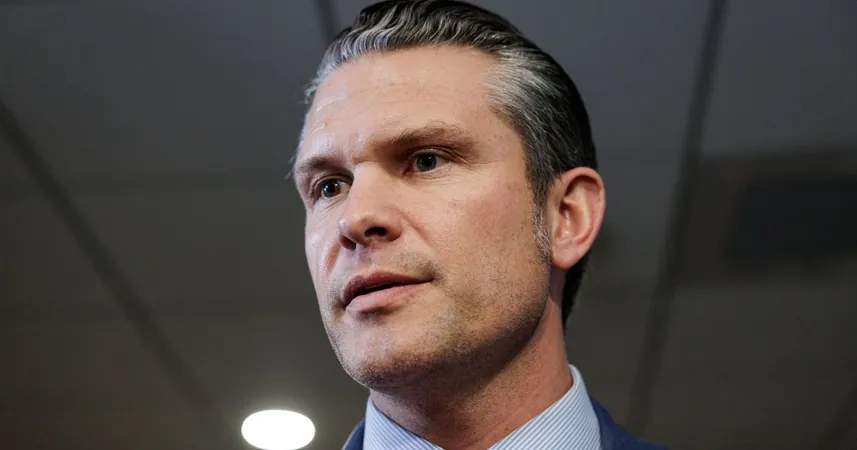
Boeing's Attempted Plea Deal for Fatal 737 Max Crashes Falls Flat: What This Means for the Future
2024-12-06
Author: Noah
In a significant legal setback for Boeing, a U.S. judge has rejected a plea agreement linked to the tragic crashes of two 737 Max aircraft that resulted in the deaths of 346 people. This development not only signifies a potential shift in accountability for the aerospace giant but also raises serious questions about the effectiveness of oversight involving the company.
Originally reached in July, the plea deal included Boeing's agreement to plead guilty to a single count of criminal fraud, undertake independent monitoring, and pay a hefty fine of $243 million. However, U.S. District Judge Reed O'Connor struck down the arrangement, asserting that it undermined the integrity of the court and criticized the inclusion of diversity requirements for the monitoring position as being "contradictory".
Family members of the victims expressed relief at the ruling, labeling the original plea deal as a "get-out-of-jail-free card" for Boeing. They have long sought accountability for the company’s actions leading up to the crashes, and many felt the deal failed to address their grievances adequately. “This deal didn't hold anyone accountable for the deaths of 346 people,” stated Ike and Susan Riffel, who tragically lost their two sons in the crashes. Their sentiments were echoed by various advocacy groups clamoring for justice and transparency in aviation safety.
The Department of Justice (DOJ) is currently reviewing the judge's decision as the pressure mounts on Boeing to rectify its safety deficiencies, underscored by a recent incident in January. A door panel blow-off shortly after takeoff from an Alaska Airlines flight raised alarms about Boeing's ongoing safety measures, especially following the two catastrophic crashes in 2018 and 2019 attributed to design flaws in the aircraft's flight control system.
Judge O'Connor pointed to the DOJ's supervision over Boeing since the initial crashes, concluding that it had proven ineffective. He further clarified that the existing agreement failed to require Boeing to follow through on the monitor's recommendations and gave the company undue influence in the selection process. Highlighting concerns over diversity-and-inclusion strategies, he emphasized the importance of industry accountability based purely on competence, especially in cases of such gravity.
With the ruling presenting a pivotal moment in the ongoing saga, Boeing and the DOJ are now tasked with formulating a new plan within a 30-day window. The rejection of this plea deal marks yet another chapter in an unfolding narrative riddled with legal challenges and scrutiny surrounding Boeing's operational practices.
As stakeholders wait to see how this situation develops, one thing remains clear: the quest for justice is far from over. Will this judicial decision finally hold Boeing accountable and ensure the safety of the flying public? Only time will tell.









 Brasil (PT)
Brasil (PT)
 Canada (EN)
Canada (EN)
 Chile (ES)
Chile (ES)
 España (ES)
España (ES)
 France (FR)
France (FR)
 Hong Kong (EN)
Hong Kong (EN)
 Italia (IT)
Italia (IT)
 日本 (JA)
日本 (JA)
 Magyarország (HU)
Magyarország (HU)
 Norge (NO)
Norge (NO)
 Polska (PL)
Polska (PL)
 Schweiz (DE)
Schweiz (DE)
 Singapore (EN)
Singapore (EN)
 Sverige (SV)
Sverige (SV)
 Suomi (FI)
Suomi (FI)
 Türkiye (TR)
Türkiye (TR)